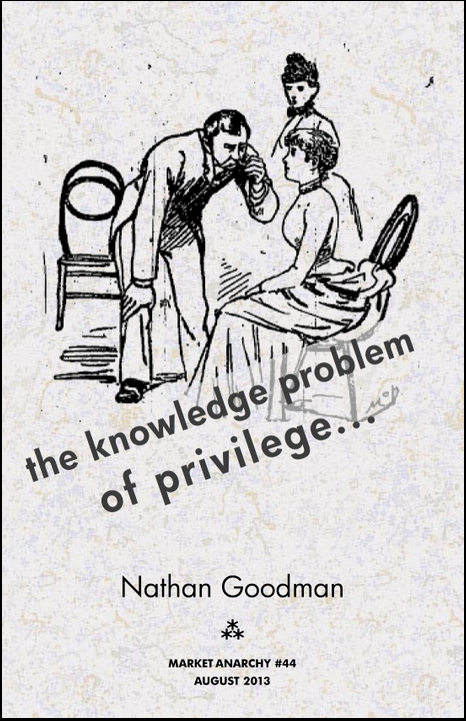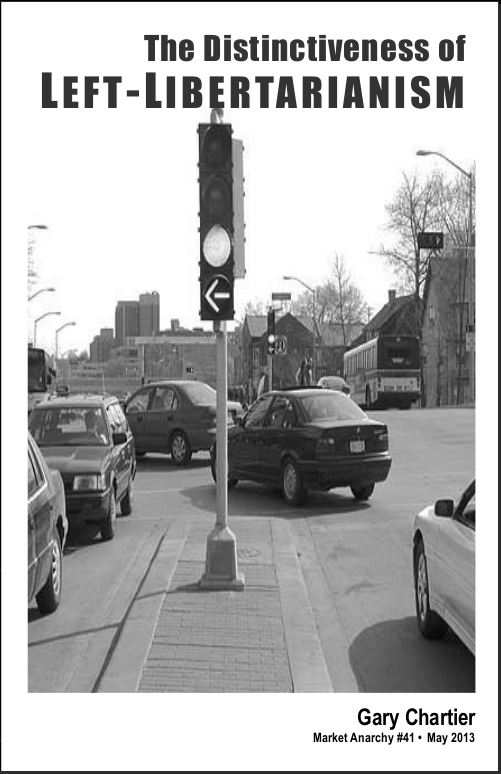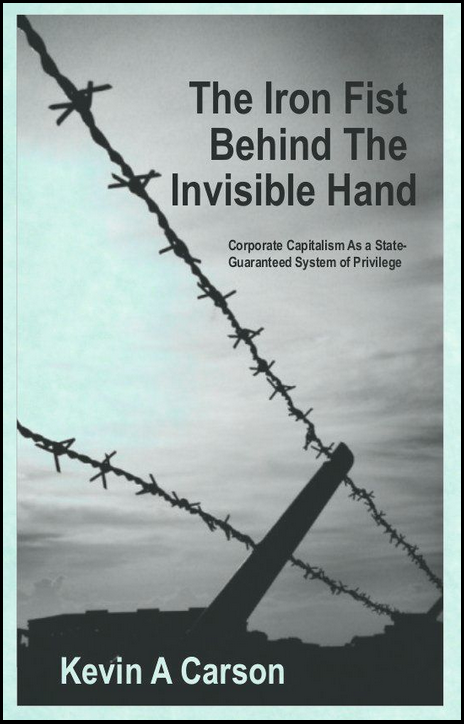June has been a great month for the Center for a Stateless Society (C4SS). We were able to publish more commentaries in June than in the previous three months.
If you are a regular donor, then I would like to thank you for your continued enthusiasm and support. If you are interested in supporting our mission “to explain and defend the idea of vibrant social cooperation without aggression, oppression, or centralized authority” with a monthly $5 donation, then I would like to give you an idea of you can expect from C4SS.
For the month of June, C4SS published:
31 Commentaries (6 more than May),
15 original Features (1 more than May),
4 Weekly Abolitionists,
8 Life, Love and Liberty,
4 Weekly Libertarian Leftist Reviews,
3 Missing Commas,
1 Wars and Rumors of Wars,
1 Entrepreneurial Anti-Capitalism,
1 academic level study,
2 original Book Review and
12 C4SS Media uploads to the C4SS youtube channel.
Thanks to the dedication of our Media Coordinators, C4SS translated and published:
4 Italian translations,
22 Portuguese translations (1 more than May).
Our purchase in Brazil continues to grow. In only three months the Portuguese C4SS facebook “like” page has gone from zero to well over a thousand. To mark the occasion, one of our friends made us this:
Missing Comma‘s Trevor Hultner has decided to take a month or two off, and, to your good fortune, Juliana Perciavalle has decided to join the C4SS team with a focus on maintaining the Missing Comma blog. Juliana and Trevor have also recorded C4SS’s Feed 44 media project’s first podcast interview, discussing Juliana’s first two Missing Comma posts. Currently the number of downloads that the C4SS podcast channels have counted stands a little over eighty five hundred. You can follow Feed 44 through one of these outlets:
And as always, Bitcoin tips welcome:
- 1N1pF6fLKAGg4nH7XuqYQbKYXNxCnHBWLB
The C4SS Tor Node
C4SS maintains, now going on three full years, a Tor Relay Node. We have completed fundraisers to support this node in the past to great success; so successful was the last one that we haven’t needed another one in quite some time. We encourage everyone to consider operating a Tor relay node yourself. If this, for whatever reason, is not an option, you can still support the Tor project and online anonymity with a $5 donation to the C4SS Tor relay node.
The Point of Privilege Mutual Exchange
Mutual Exchange is the Center’s goal in two senses — we favor a society rooted in peaceful, voluntary cooperation, and we seek to foster understanding through ongoing dialogue. Mutual Exchange will provide opportunities for conversation about issues that matter to the Center’s audience.
The Point of Privilege Mutual Exchange generated eight responses from four contributors, with a possible ninth from Kevin Carson.
Carson’s Graeber Study (No. 17)
Since January 1st, 2009, C4SS has been able to publish nineteen academic level studies on issues important to a left market anarchist critique of the state and conceptions of a stateless society. Our studies, along with our press room with almost fifteen hundred documented C4SS republications around the world, distinguishes us from the humble anarchist blog. Part of your monthly $5 donation will go towards continuing this project.
David Graeber’s Anarchist Thought: A Survey
… Graeber, as we already saw to be the case with Elinor Ostrom, is characterized above all by a faith in human creativity and agency, and an unwillingness to let a priori theoretical formulations either preempt either his perceptions of the particularity and “is-ness” of history, or to interfere with the ability of ordinary, face-to-face groupings of people on the spot to develop workable arrangements—whatever they may be—among themselves. Graeber is one of those anarchist (or anarchist-ish) thinkers who, despite possibly identifying with a particular hyphenated variant of anarchism, have an affection for the variety and particularity of self-organized, human-scale institutions that goes beyond ideological label. These people, likewise, see the relationships between individual human beings in ways that can’t be reduced to simple abstractions like the cash nexus or doctrinaire socialism. …
Entrepreneurial Anti-Capitalism
In June, Net Neutrality, that “unstable equilibrium,” died. I am sure that many open internet advocacy groups will fight valiantly to restore it, or pieces of it, but this is a dead end. The ISPs and the Dingos in the FCC will continue to throw mountains of cash and influence at the internet, until they get – completely – what they want. Capitalism is damage, time to route around it. To this end, the fourth Entrepreneurial Anti-Capitalism project that C4SS has backed are radical mesh networks:
… We at the Center for a Stateless Society believe strongly in the potency and importance of persuasion in building a freed world, but we also know that world won’t be built without hands-on grappling, activist organizing and building commons. That’s why we started the Entrepreneurial Anti-capitalism project, to pay forward the good fortune we’ve received and provide a helping hand to those doing amazing, necessary, frequently thankless work with very little.
It is our hope that others will follow our lead in donating to these great projects. Each one accepts bitcoin at the following addresses:
- People’s Open Network: 12RxU4DpLpdWcmEBn7Tj325CCXBwt5i9Hc
- AlterMundi: 12mVSq3NBKTs3tCpWXyJqwdHq8p92ka6fq
- KC Freedom: 1Jmjmf2hDWsrSfnxiM27GZtNWmWGbPNEQM
Look forward, in July, for our write up on the fifth Entrepreneurial Anti-Capitalism project, and how you can also support, the Anarchist Black Cross in Mexico City and Denver.
What is Left-Libertarianism?
Friedrich Nietzsche councils us, in his The Genealogy of Morals, that “…all ideas, in which a whole process is promiscuously comprehended, elude definition; it is only that which has no history, which can be defined.” This is not to say that these ideas cannot be approached, utilized, valued, defended or understood, only that their status as solid or definitive is, forever, in dispute. They must be approached genealogically, contextually or con-textually, instead of derivatively or positively. Quentin Skinner explains, “the history of thought should be viewed not as a series of attempts to answer a canonical set of questions, but as a sequence of episodes in which the questions as well as the answers have frequently changed.” Or, as Skinner concludes his introduction to his Visions of Politics: Regarding Method,
What the historical record strongly suggests is that no one is above the battle, because the battle is all there is.
If this is true for such all purpose and all powerful words like “liberty,” “consent,” “property,” and “state,” then it is doubly true for the word “libertarian” – triple for “left libertarian.” We have occasionally published, re-published or collected summaries and introductions answering this episode’s question “What is Left-Libertarianism?” as we understand and defend it. But, since, we will never be “above the battle,” Kevin Carson has thrown down a refreshed and (near) three thousand word gauntlet:
… We of the Libertarian Left, as we understand it at C4SS, want to take back free market principles from the hirelings of big business and the plutocracy, and put them back to their original use: an all-out assault on the entrenched economic interests and privileged classes of our day. If the classical liberalism of Smith and Ricardo was an attack on the power of the Whig landed oligarchs and the moneyed interests, our left-libertarianism is an attack on the closest thing in our own time: global finance capital and the transnational corporations. We repudiate mainstream libertarianism’s role in defense of corporate capitalism in the 20th century, and its alliance with conservatism.
We of the Libertarian Left also want to demonstrate the relevance of free market principles, free association and voluntary cooperation in addressing the concerns of today’s Left: Economic injustice, the concentration and polarization of wealth, the exploitation of labor, pollution and waste, corporate power, and structural forms of oppression like racism, sexism, homophobia and transphobia. …
New Book Reviews
We have added to our list of book reviews to expect:
Zines!
C4SS has been a long time partner with Charles Johnson‘s Alliance of the Libertarian Left Distro. This partnership brings with it a little “help the Center” finder’s fee. Just another way you can help support C4SS. The following zine list, highlighted below, has been selected to further showcase the topics discussed in June’s Mutual Exchange and Kevin Carson’s gauntlet.
We Haven’t Forgotten
We still have our David Graeber Symposium on the horizon, along with our Carson-Ward-Bookchin edition of Kropotkin’s “Fields, Factories and Workshops Tomorrow”.
Please Support Today!
Needless to say, all of this work is only sustainable through your support. If you think the various political and economic debates around the world are enhanced by the addition ofleft libertarian market anarchist, freed market anti-capitalist or laissez faire socialist solutions, challenges, provocations or participation, please donate $5, today. Keep C4SS going and growing.
ALL the best!













